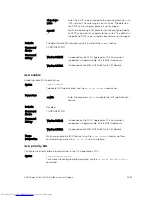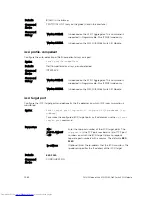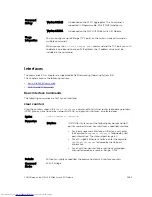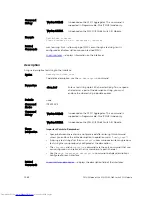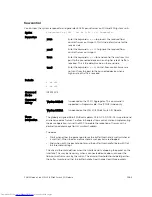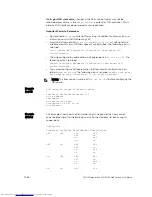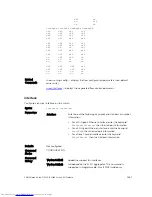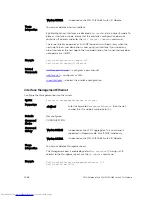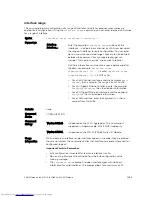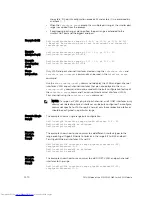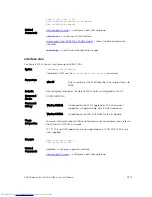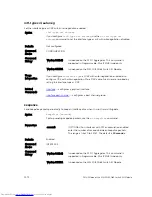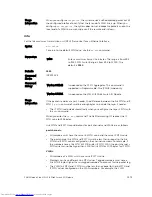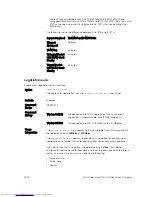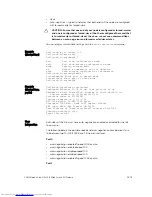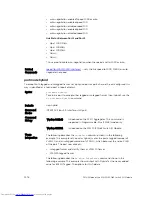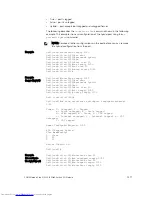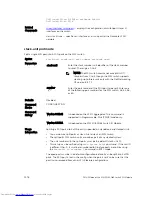
• Slave
• Auto-neg Error — typically indicates that both ends of the node are configured
with forced-master or forced-slave.
CAUTION: Ensure that one end of your node is configured as forced-master
and one is configured as forced-slave. If both are configured the same (that
is, forced-master or forced-slave), the
show interfaces
command flaps
between an auto-neg-error and forced-master/slave states.
You can display master/slave settings with the
show interfaces
command.
Example
(Master/Slave)
Dell(conf)# int tengig 0/0
Dell(conf-if)#neg auto
Dell(conf-if-autoneg)# ?
end Exit from configuration mode
exit Exit from autoneg configuration mode
mode Specify autoneg mode
no Negate a command or set its defaults
show Show autoneg configuration information
Dell(conf-if-autoneg)#mode ?
forced-master Force port to master mode
forced-slave Force port to slave mode
Dell(conf-if-autoneg)#
Example
(Master/Slave,
partial)
Dell#show interfaces configured
TenGigabitEthernet 13/18 is up, line protocol is up
Hardware is Dell Force10Eth, address is 00:01:e8:05:f7:fc
Current address is 00:01:e8:05:f7:fc
Interface index is 474791997
Internet address is 1.1.1.1/24
MTU 1554 bytes, IP MTU 1500 bytes
LineSpeed 1000 Mbit, Mode full duplex, Master
ARP type: ARPA, ARP Timeout 04:00:00
Last clearing of "show interfaces" counters 00:12:42
Queueing strategy: fifo
Input Statistics:
...
User
Information
Both sides of the link must have auto-negotiation enabled or disabled for the link
to come up.
The following details the possible speed and auto-negotiation combinations for a
line between two 10/100/1000 Base-T Ethernet interfaces.
Port 0
• auto-negotiation enabled* speed 1000 or auto
• auto-negotiation enabled speed 100
• auto-negotiation disabled speed 100
• auto-negotiation disabled speed 100
• auto-negotiation enabled* speed 1000 or auto
Port 1
PMUX Mode of the MXL 10/40GbE Switch I/O Module
1475

